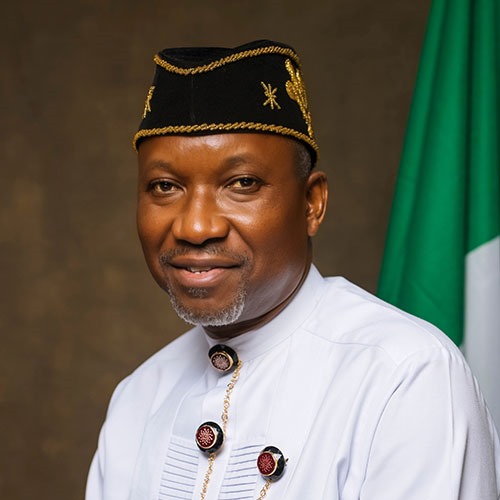By Ademola Adekusibe
October 25, 2025
Nigeria has secured a significant diplomatic and energy milestone following the election of Dr Philip Mshelbila, Managing Director of Nigeria LNG Limited, as Secretary-General of the Gas Exporting Countries Forum (GECF). The announcement was made on Wednesday, October 23, 2025, during the Forum’s 27th Ministerial Meeting in Doha, Qatar.
The victory marks a double success for Nigeria as the Minister of State for Petroleum Resources (Gas), Ekperikpe Ekpo, was simultaneously named President of the 2026 GECF Ministerial Meeting—solidifying Nigeria’s growing authority within the global gas alliance.
Founded in 2001 and headquartered in Doha, the GECF is the leading intergovernmental body representing the interests of gas-producing nations. Its twelve member states, including Nigeria, Qatar, Russia, Iran, Algeria and Venezuela, collectively hold nearly 70 percent of the world’s proven gas reserves and account for over half of global LNG exports.
President Bola Tinubu, in a congratulatory message, described Mshelbila’s election as “a resounding vote of confidence in Nigeria’s technical competence, energy diplomacy, and leadership on the global stage.” He reaffirmed that natural gas remains central to Nigeria’s industrialisation drive and energy transition roadmap under the Renewed Hope Agenda.
Behind Nigeria’s triumph lay weeks of intense diplomatic negotiations led by the Minister of Foreign Affairs, Ambassador Yusuf Maitama Tuggar. Sources within the Foreign Ministry confirmed that Nigeria’s missions across GECF member states were mobilised to campaign for the country’s candidacy, while bilateral meetings and coalition-building efforts were pursued at high-profile international summits.
Ambassador Tuggar described the outcome as “a culmination of strategic diplomacy and presidential coordination,” noting that the achievement reinforces Nigeria’s renewed global standing. He added that the success demonstrates how Africa can shape global energy policy through collaboration and strategic engagement.
Nigeria, Africa’s largest gas producer with over 210 trillion cubic feet in proven reserves, has long positioned natural gas as a transition fuel in the march toward cleaner energy. With Mshelbila now at the helm of the GECF Secretariat, Nigeria is expected to play a stronger role in steering global gas policies, stabilising market dynamics, and promoting fairer representation for developing economies.
The GECF, often referred to as the “OPEC of gas,” serves as a platform for members to coordinate strategies, share market intelligence, and ensure stability in energy supply and pricing. With Nigeria’s dual victories in Doha, the country now stands at the centre of global conversations about energy transition, economic sustainability and Africa’s place in the future of natural gas.






